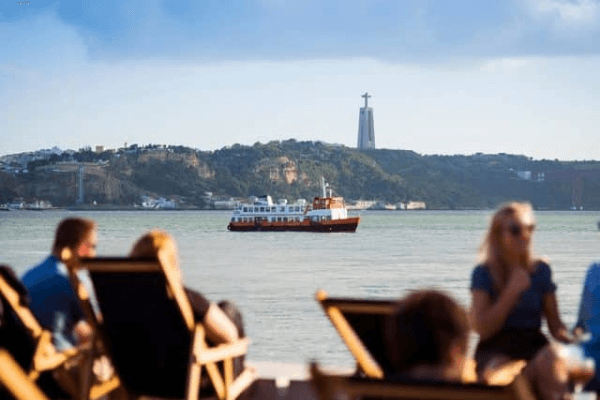
Since the pandemic took hold, tourism, or the lack of it, has been in the media on an almost daily basis. But what is the reality of the sector as summer 2021 gets underway?
More guests and overnight stays in 2021 compared to last year
According to the most recent INE report (National Statistics Institute) on tourist activity in Portugal in April this year, the tourist accommodation sector registered 460,000 guests and 946,800 overnight stays, corresponding to positive variations of 762.6% and 510.8% respectively compared to the same month in 2020, when tourist activity practically ceased, and 59.6% and 67.1% more than the previous month.
When comparing April 2019, we realise that the sector is still below pre-pandemic levels, with a decrease of 80.3% in the number of guests and a decrease of 84.2% in overnight stays.
Overall, between January and April this year, considering all means of accommodation (tourist accommodation establishments, campsites and holiday camps and youth hostels), there were 1.4 million guests and 3.3 million overnight stays, corresponding to losses compared to the same period in 2020 of -65.9% and -67.2%, respectively.
Despite the limitations on the movement of tourists at European level, in the period under review there was an increase in overnight stays from "non-residents" in the order of 496.5% compared to the same period in 2020 (-20.8% in March 2021). The situation was not very different for national tourists, with overnight stays increasing by 517% last April compared to the same period in 2020 and by 20.8% compared to March, respectively.
As with the total figures for guests and overnight stays, when comparing the numbers of national and non-national tourists with April 2019, there were decreases of 60.3% and 93.5%, respectively.
Another word for the net bed occupancy rate. In April this year, this rate reached 12.9%, which meant an increase of 6.1 p.p. compared to April 2020 and 7.1 p.p. compared to March.
Revenue from tourist accommodation up 838%
This increase in arrivals and overnight stays ends up having downstream consequences, with revenue recorded in tourist accommodation establishments totalling 47.7 million euros and 35.9 million euros in terms of accommodation, corresponding to variations of 838.0% and 696.4% respectively compared to April 2020.
Although positive, these figures are still below pre-pandemic levels. Compared to April 2019, total revenue decreased by 85.8% and revenue from accommodation decreased by 85.6%.
For tourist accommodation establishments as a whole, the average revenue per available room (RevPAR) stood at 10.8 euros in April (7.4 euros in March), while the average revenue per occupied room (ADR) totalled 61.9 euros in April (51.0 euros in March). To give you an idea, in April 2019, RevPAR and ADR were 45.5 euros and 81.3 euros, respectively.
Lisbon region accounted for ¼ of overnight stays in April
According to INE, the region that received the most overnight stays in April was Área Metropolitana Lisboa, with 24.4% of the national total, followed by the North (19.7%), the Centre (15.5%) and the Algarve (14.9%).
In the first four months of the year as a whole, the regions with the smallest decreases in the number of overnight stays were the Alentejo (-38.4%), RA Açores (-45.5%), Centre (-56.7%) and North (-63.6%), while the remaining regions, including Lisbon, recorded decreases of more than 70%, figures that suffer, in the country as a whole, from the absence of a drop in the number of foreign guests.
A more detailed analysis of the country's most touristic municipalities shows that, in the first four months of 2021 as a whole, Lisbon recorded 385,000 overnight stays (14.1% of the total), which translated into a decrease of 82.1% compared to the same period in 2020.
During this period, overnight stays from residents in Lisbon (54.41 T3T) fell by 50.41 T3T and those from non-residents fell by 89.81 T3T. It should also be noted that Lisbon accounted for 20.11 TQT3 of all overnight stays from non-residents in the first four months of the year.
In the case of Funchal (6.91 T3T of the total), overnight stays fell by 80.91 T3T in the first four months of the year, with a drop of 26.51 T3T for residents and 86.71 T3T for non-residents. In Oporto (3.71 per cent of the total), overnight stays fell by 85.01 per cent in the first four months of the year (-56.61 per cent among residents and -93.31 per cent among non-residents).
What to expect and how to prepare for what's left of 2021?
No one has a crystal ball and, in the current scenario, any exercise in futurology could come out wrong, but according to the DiscoverThe company, an internationally recognised brand in the development of payment solutions, expects 21 million tourists to arrive in Portugal this year, a figure that could reach 28 million a year by 2025.
Despite the fact that, as we have seen, the pandemic has caused tourism to fall, the data compiled by Discover indicates that last year foreign tourists left our country with around 11.7 billion euros, figures that help to highlight the need for tourist establishments not only to continue to strengthen their hygiene and safety plans, but also to make them available to the public. payment methods which meet the expectations and needs of the new consumer profile that has emerged from the pandemic and which, in general terms, is characterised by the growing use of contactless technology and digital means for booking and paying for the tourism products and experiences they buy.
With this gradual increase in the number of tourists, particularly foreign tourists, businesses will have to pay particular attention to managing bookings and payments in 2020.
This necessarily involves the provision of payment solutions for hotels that take into account not only the primacy of the contactless payments and online, as well as the currency conversion servicesThis is because a significant proportion of foreign tourists arriving in Portugal come from countries where the national currency is not the euro.
Whether through DCC service - Currency Conversion which, in a simple and fast way, allows its customers to choose to pay by card in their currency of origin, in a transparent, informed and secure way, either through the solution of integrated payments for hotels which, through the integration of TPA (automatic payment terminal) with the main hotel billing software, ensures that your customers' check-in and check-out processes are faster, safer and more efficient.
In addition to this set of solutions, the following should also be considered Key Enter TPA, a POS solution that will allow you to accept bookings or payments remotely, directly from your payment terminal.
In practice, with the Key Enter TPA you'll be able to authorise transactions remotely and thus ensure that you don't miss any bookings. REDUNIQ's POS solution also allows customers to make payments in cases of "no show" - when they haven't used or cancelled the reservation - or "late charge" - for last-minute consumptions detected after their departure.
In addition to contactless and reserves, the Key Enter TPA may be associated with DCC- Currency Conversion service and/or the solution Integrated Payments for Hospitality.


